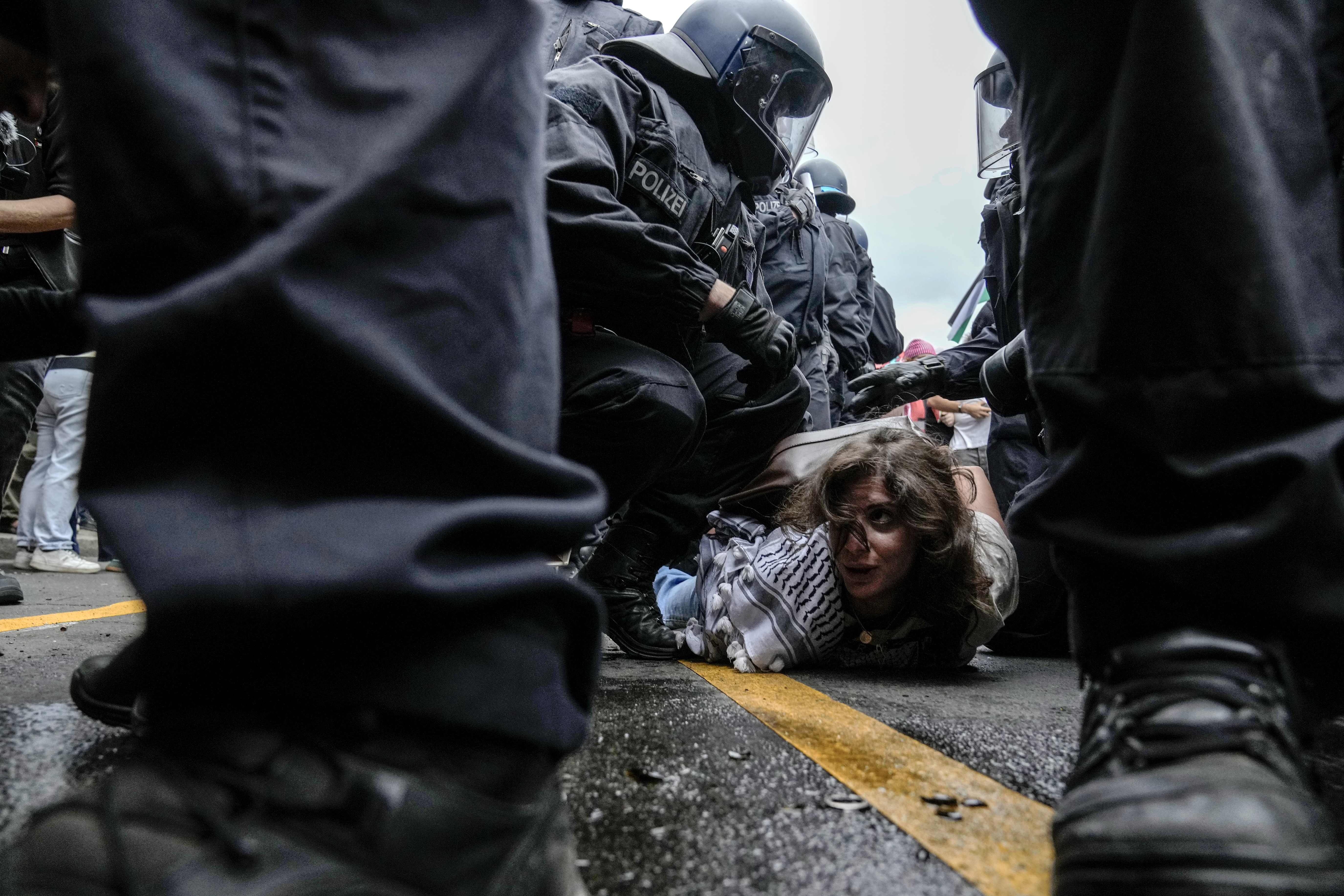Germany has taken a chilling new turn, signalling its intent to use political expression as a basis for immigration enforcement. Authorities are now seeking to deport foreign nationals over their involvement in pro-Palestine activism.
In March, the German government issued deportation orders to three EU citizens and one American for their continued participation in protests against Israel’s war in Gaza.
Two of the activists who are Irish citizens, one Polish and one American have condemned German authorities for politicising their deportation orders, and reject allegations of anti-Semitism and indirect support for Hamas.
None of the four activists have a criminal record, nor have they been charged with any crimes related to their activism. They were given six weeks to leave.
Roberta Murray, one of the Irish citizens, told TRT World that the charges are politically motivated, stating that the reasons cited in the deportation orders are “based on Germany’s Staatsräson — a doctrine that enshrines unconditional support for Israel, no matter its systematic human rights abuses and war crimes.”
Cooper Longbottom, an American student enrolled at a Berlin university, said:
“I was initially very scared, it’s scary to be told that you will have to leave your home within a month.”
She added, “It didn’t make any sense and I hadn’t received any criminal charges, so I was just shocked that they could even do that.”
Murray says that she fears Germany could further tighten migration law and erode civil liberties. “Germany is using this as a stepping stone, a litmus test to see how far they can push this, they have already been tightening migration law in Germany and have been clamping down on civil liberties in general. I think this is clearly a desperate attempt to see how far they can go with this.”
Berlin has already blocked all processing of asylum applications for Palestinians from Gaza claiming “the current events [in Gaza] are consistently unclear and difficult to assess”.
The deportation orders are the latest in a nearly two-year-long crackdown on the Palestine solidarity movement in the country. Previously authorities have banned former Greek finance minister Yanis Varoufakis from entering the country, UN special rapporteur Francesca Albanese from giving a public talk at an event in Berlin, and British-Palestinian surgeon Ghassan Abu-Sittah from entering the country to attend a conference on Palestine.
Criticism & defiance
The March deportation orders have sparked widespread criticism from German civil society and European political leaders.
Ireland’s Prime Minister is expected to raise the issue with the German government, while Irish MEPs are pushing for the European Commission to intervene.
Political party Mera25, founded by former Greek finance minister, Yanis Varoufakis, also condemned actions of the German government. “We name this for what it is: a fascist, authoritarian attack on fundamental democratic rights — orchestrated by Berlin....Staatsräson is not a legal category. It is a political slogan now being used to undermine constitutional rights and target dissenters. This doctrine is being used to justify deportations and criminalisation of anyone who refuses to remain silent in the face of genocide.”
According to an Intercept investigation, senior Berlin bureaucrats initially resisted signing off on the deportation orders and did so only after political pressure from the Berlin state government.
Murray says that the crackdown on Palestine solidarity extends beyond Germany:
“I think the Palestine solidarity movement globally is facing very dangerous repression techniques from almost every State. We’ve seen it in Germany, we’ve seen it in the UK, and now the USA. These governments don’t want us to speak up the way we are.”
The activists draw parallels to the Trump administration’s use of deportation as a method of repressing US residents exercising their freedom of speech. In the US, authorities have reportedly arrested or revoked the visas of at least 300 pro-Palestine students and academics in recent weeks.
Despite the pressure, Murray and her fellow activists remain defiant, saying that scare tactics will not silence them but instead strengthen their resolve.
“After this, we keep fighting. Over 300 kids have been killed in Gaza in the last two weeks alone, and that for me is a reason to keep fighting, whether I face deportation or otherwise. This is bigger than us,” Murray said.
Longbottom adds: “I think we’ve chosen to fight our case, including publicly, because it is so clear how unjust it is and how politically targeted and motivated.”
Alexander Gorski, the lawyer representing the group, expressed confidence that they will secure interim relief through an injunction halting the deportations, scheduled for April 21.















